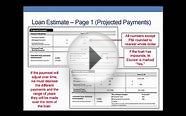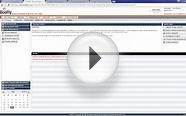
A mortgage broker acts as an intermediary who brokers mortgage loans on behalf of individuals or businesses.
Traditionally, banks and other lending institutions have sold their own products. However, as markets for mortgages have become more competitive, the role of the mortgage broker has become more popular. Today in most developed mortgage markets (especially in Canada, the U.S., the UK, Australia, New Zealand and Spain), mortgage brokers are the largest sellers of mortgage products for lenders.
Mortgage brokers exist to find a bank or a direct lender that an individual seeks with a specific loan the individual is seeking. Mortgage brokers in Canada are paid by the lender and do not charge fees for good credit applications.
The majority of mortgage brokers are regulated to ensure compliance with banking and or finance laws in the jurisdiction of the consumer; however, the extent of the regulation depends on the jurisdiction. Only one state within the U.S. has no laws that govern mortgage lending.
Duties of a mortgage broker[edit]
Banking activities can be divided into the following:
- Retail banking: dealing directly with individuals and small businesses
- Business banking: providing services to mid-market business
- Corporate banking: directed at large business entities
- Land mortgage banking: it specializes in originating and/or serving land mortgage loans
- Private banking: providing wealth management services to high-net-worth individuals and families
- Investment banking: relating to activities on the financial markets
Most banks are profit-making, private enterprises, however, some are owned by government, or are non-profits. Central banks are normally government-owned banks, which are often charged with quasi-regulatory responsibilities, e.g. supervising commercial banks, or controlling the cash interest rate. They generally provide liquidity to the banking system and act as lender of last resort in event of a crisis.
The nature and scope of a mortgage broker's activities varies with jurisdiction. For example, anyone offering mortgage brokerage in the UK is offering a regulated financial activity; the broker is responsible for ensuring the advice is appropriate for the borrowers' circumstances and is held financially liable if the advice is later shown to be defective. In other jurisdictions, the transaction undertaken by the broker may be limited to a sales job: pointing the borrower in the direction of an appropriate lender, no advice given, and a commission collected for the sale.
Therefore, the work undertaken by the broker will depend on the depth of their service and liabilities.
Typically the following tasks are undertaken:
- marketing to attract clients
- assessment of the borrower's circumstances (Mortgage fact find forms interview) - this may include assessment of credit history (normally obtained via a credit report) and affordability (verified by income documentation)
- assessing the market to find a mortgage product that fits the client's needs. (Mortgage presentation/recommendations)
- applying for a lenders agreement in principle (pre-approval)
- gathering all needed documents (paystubs/payslips, bank statements, etc.)
- completing a lender application form
- explaining the legal disclosures
- submitting all material to the lender
- upholding their duty by saving their clients as much money as possible by offering best advice for the clients circumstances
Mortgage brokerage in the US[edit]
According to a 2004 study by Wholesale Access Mortgage Research & Consulting, Inc., there are approximately 53, 000 mortgage brokerage companies that employ an estimated 418, 700 employees and originate 68% of all residential loans in the U.S.. The remaining 32% is retail done through the lender's retail channel, which means the lender does not go through a broker.
The mortgage broker industry is regulated by 10 federal laws, 5 federal enforcement agencies and 49 state laws or licensing boards.
The banks have used brokers to outsource the job of finding and qualifying borrowers, and also to outsource some of the liabilities for fraud and foreclosure onto the originators through legal agreements.
During the process of loan origination, the broker gathers and processes paperwork associated with mortgaging real estate.
Difference between a mortgage broker and a loan officer[edit]
A mortgage broker works as a conduit between the buyer and the lender, the loan officer typically works directly for the lender. Most states require the mortgage broker to be licensed. States regulate lending practice and licensing, but the rules vary. Most have a license for those who wish to be a "Broker Associate", a "Brokerage Business", and a "Direct Lender".
A mortgage broker is normally registered with the state, and personally liable (punishable by revocation or prison) for fraud for the life of a loan. A loan officer works under the umbrella license of their current institution, typically a bank or direct lender. Both positions have legal, moral, and professional responsibilities as well as liabilities to prevent fraud and fully disclose loan terms to both consumer and lender. Additionally, agents of mortgage brokers may refer to themselves as "loan officers".
Mortgage brokers must also be licensed through the Nationwide Mortgage Licensing System and Registry (NMLS). The purpose of the Nationwide Mortgage Licensing System is to improve and enhance mortgage industry supervision, create better communication from state to state, and to create consistency in licensing requirements and automate the licensing process to the greatest degree possible. Loan officers that work for a depository institution are required to be registered with the NMLS, but not licensed.
Typically, a mortgage broker will make more money per loan than a loan officer, but a loan officer can utilize the referral network available from the lending institution to sell more loans. There are mortgage brokers and loan officers at all levels of experience.
Industry competitiveness[edit]
A large segment of the mortgage finance industry is commission-based. Potential clients can compare a lender's loan terms to those of others through advertisements or internet quotes.
Interesting facts
Additional information

















